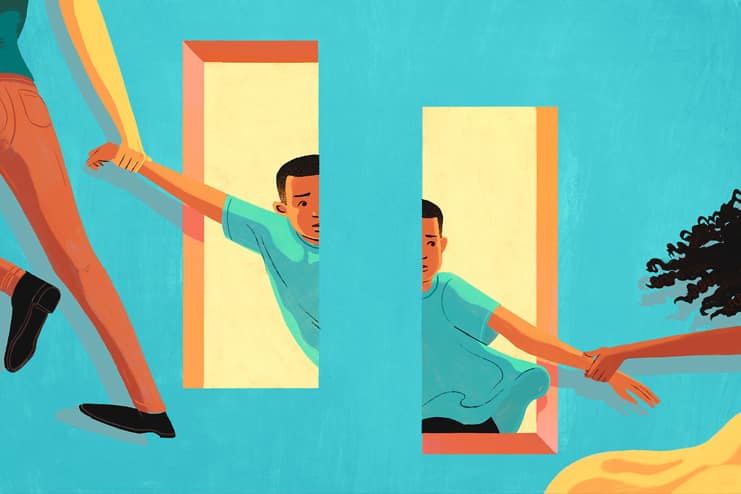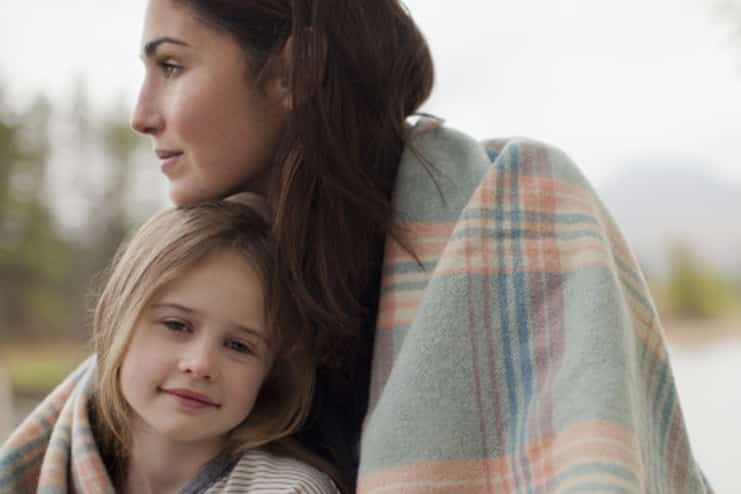Kids experience immense stress with the divorce of their parents. Helping the child to cope with the divorce is the complicated task of parenting.
Kids have very sensitive heart and emotions. The way how the kids react to the divorce depends on their age, personality, and the consequences that lead to the divorce. Studies show that family structure impacts the health of the children.
This article discusses the impacts of divorce on children. It presents the tips to deal with angry child after divorce.
Impacts of Divorce on Children:

Kids are likely to experience distress, anger, anxiety, and disbelief after the divorce of their parents. Some kids easily get back to the normal position whereas the others may take long time or never get back to normal.
Divorce has many negative impacts on the children. Some of them include:
1. Emotional Impact:
Divorce offers more confusing, scary, and frustrating situation for the kids. Younger kids may struggle to get answers for many of their questions. Kids may develop negative feeling towards one of their parents.
2. Behavior problems:
Children from divorced families are more prone to get affected by the behavior problems like bad conduct, delinquency, and impulsive behavior. In additional to the behavioral disorders children may create conflicting situations with their peers.
3. Poor Academic Performance:
Academic performance of the kids from divorced families gradually are more likely to get poor grades. Involvement of both the parents play a key role in the development of the child.
4. Lack of interest in the social activities:
Divorce can after the social development of the children. Children who live in divorced families may find harder time to get connected with the people in the social environment. They have very less secure contacts.
5. Health problems may increase:
Children who experienced divorce may face many health conditions like sickness, difficulty in sleeping. Some kids may often regret to eat the food. All the negative emotions may collapse their well being and offer many health signs.
6. Difficulty in adapting to changes:
Children may struggle with the changes that occur due to divorce. They may experience new family dynamics, or living situations, schools, friends, and many more.
7. Mood swings and irritability:
Young children may experience irritability and mood swings when they don’t have proper interaction with their family members. The child may go into a withdrawal mode. They stay quiet and prefer spending time alone.
8. Angry:
Children may develop anger with one or both the children for the relationship breakdown. They often display this anger at their friends, and family members.
9. Loss of faith in marriage and the family:
Children who are grown up in the divorced families develop negative behaviors and may build the negative relations in the adulthood. Gradually, children may lose trust in the family.
10. Eating Disorder:
Children who grow in the divorced families may develop wide range of eating disorders. They do not show any interest while eating. They are prone to be affected by various infections due to lack of nutrients.
11. Guilt:
Divorce may develop the signs of guilt in the children. Children may make many misconceptions. This guilt may develop many suppressive feelings in the long run and may lead to many healthy conditions.
How To Deal With An Angry Child After Divorce?

Here are a few tips to deal with the angry child after divorce.
1. Be honest and wise with your child:
Your child may be too young to understand the reasons of divorce. Don’t try to convince your child with some temporary reasons. Make your child bold, confident and strong enough to digest the truth and move on. Be honest with your answers. Reassure your child that though both of you are separate they can help and support the child just like before the divorce.
2. Don’t speak anything negative about the other parent:
Don’t take divorce as a chance to create negative feelings towards other parent. Never make your child away from the love and affection of the other parent. It is the primary natural right of the children to be loved by both the parents. Don’t make your child to get affected by your divorce.
3. Show love and affection towards your child:
Show love and affection through your words and actions. Keep your hurtful feelings apart when you are with your child. Love and affection are the best tools that help your child feel safe and secure.
4. Adapt Co Parenting:
It is the practice of taking the joint responsibility to raise a child. Co Parenting makes your child enjoy the love and affection from both the parents. This is the best way of setting the positive role models for your child.
5. Show interest in their life:
Show more interest in the life of your child by showing your active involvement. Don’t make your new life to create disturbances or lack of interest in the needs of the children.
6. Make the other parent to communicate with the child often:
The technology has simplified our lives and made the communication simple and easy. Make the other parent to reach out to your child regularly.
7. Schedule visits with the other parent:
Understand that the child need the other parent the same way as they need you. Schedule the visits with the other parent as per their convenient and flexible timings. Make your child to have quality time with the other parent.
8. Gently handle the kids reactions:
Don’t expect your kids to be able to cope with the fear and stress themselves. Make your kids feel that you are there to recognize and understand their feelings. Help your child to deal with the negative and upset feelings. Never make your child to hide the feelings. Help your kids to put their feelings into words.
9. Respect the feelings of your kid:
Understand and respect the feelings of your kid. Anger in your child is the result of fear of losing the other parent. Protect your child with the emotions and make them able to move forward.
10. Make the grandparents to step in:
Grandparents are great in making your kids escape from the negative feelings. They help in soothing the negative feelings of the child and help them to have well balanced emotions.
11. Make yourself available to your child:
Don’t make yourself busy with the office work even at home. Finish your work at the office by minimizing the distractions. Play with your child and plan some activities for the weekend. Attend the school functions and be the best parent. Be flexible while planning the trips as your child has two homes.
12. Heal your own pain:
You may feel distressed by the divorce. But make sure that your attitude may not hurt your child. Heal you own pain yourself. Think to offer the well nurturing environment for the proper growth of your child.
13. Make your child feel that they are your number one priority:
Never make your child feel that they are someone that you care more than your child. Don’t make any close relationships in front of your child even if you find someone.
14. Be Patient with your child:
Have patience while dealing with your angry child. Never yell at your child which may often worse their condition and feelings. Practice yourself some techniques that can make your anger to come down.
15. Keep the issues to yourself:
Separate your feelings from the attitude. Even though you are hurt or angry don’t let your feelings have negative behavior towards your child. Never make the child reason for anything and never let them to get the results of your anger. Understand that you are the only responsible for any kind of bugs in your life and push them onto your child.
16. Don’t let your child to act out for your:
Some children seem very normal and act like they do not hold any pain. It is your responsibility to read the mind of your child and help them to cope with the situations.
17. Apologize when you mess up:
Your kids may upset towards your outbursts. Acknowledge their upset and apologize them before they develop negative feeling towards you. Offer your kids safe place to process their feelings.
In conclusion, behavioral changes in children are common in most of the families. Parents are the only role models for the children to grow with good attitude. Help your child balancing the emotions and set the right model for the bright career.










































